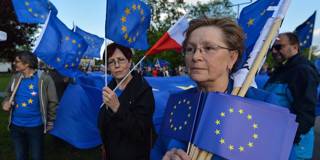
Heeding Europe’s Silent Majority
Populist and nationalist parties' recent electoral successes have fed a popular narrative that Europeans are souring on the European Union and want to "take back control." In fact, most Europeans not only support the EU, but also want it to take the lead in a broad array of policy areas that currently fall outside of its remit.
BRUSSELS – With just days to go before the European Parliament elections, this is a good time to reflect on why Europeans came together to form a political and economic union in the first place. And it behooves candidates to recognize what voters want from the European Union now.